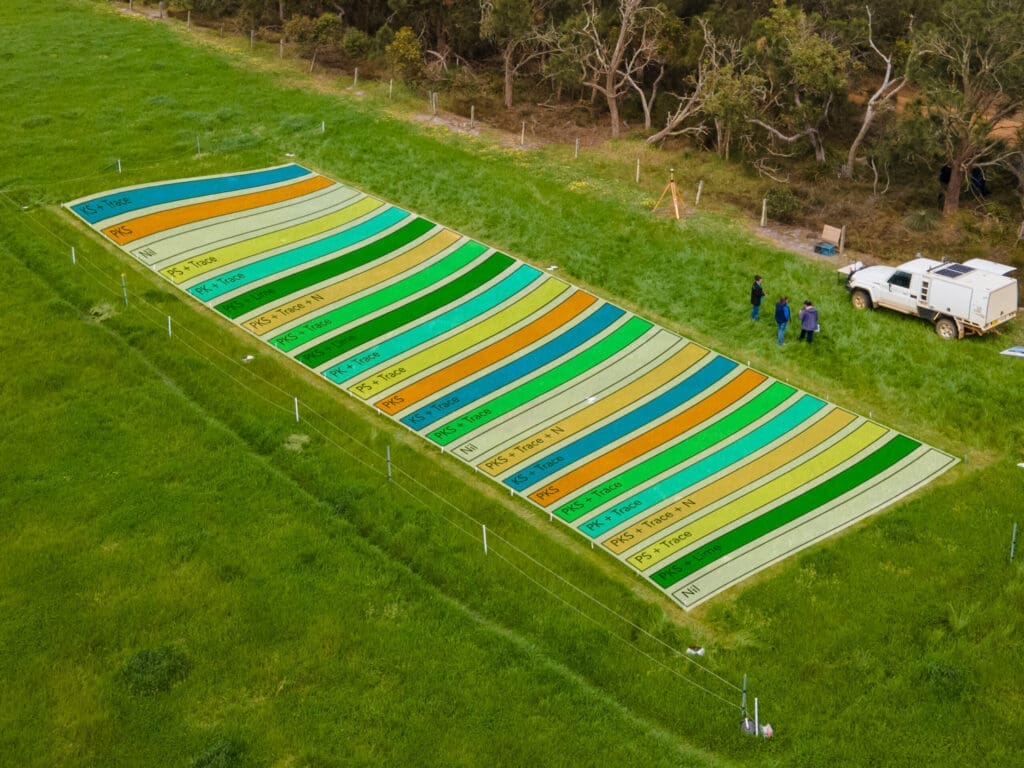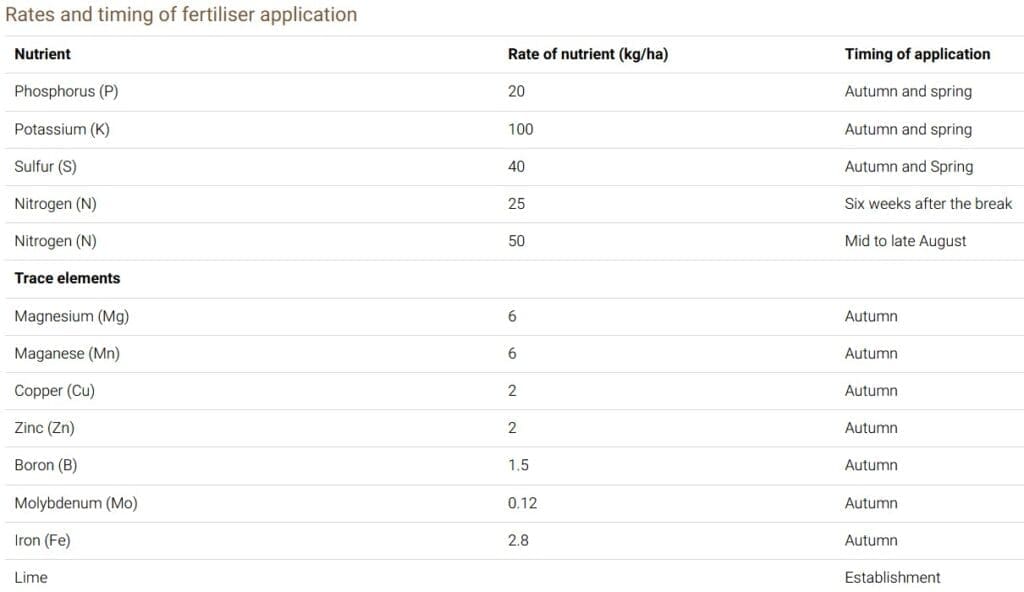The Department of Water and Environmental Regulation’s Soil Wise project was designed to give farmers greater confidence in addressing constraints that limit pasture production.
Eight fertiliser trials have been conducted across the south-west WA from 2023 to 2024. These trials have built on the work of the uPtake program, examining phosphorus as well as other nutrients of interest.
DWER’s aim of these trials is to:
- Continue to develop a successful collaboration between farmers, industry, State Government agencies and catchment groups to support productivity and profits in grazing and reduce nutrient runoff off into waterways.
- Test the relevance of the national critical soil test values for potassium (K) and sulphur (S) to south-west WA soils.
- Promote best practice in sustainable agriculture and increase farmer and industry confidence in evidence-based fertiliser recommendations.
- Demonstrate the efficient use of fertiliser products to ensure their on-farm agronomic potential is maximised and losses to waterways are minimised.
The trial in The Lower Blackwood Catchment has been carried out at Rockdale Farm in Warner Glen.

Above: an example of the strip treatments of the trials
The fertiliser trials have been developed through a collaborative Technical Reference Group with representatives from the fertiliser industry, the dairy and beef industries and State Government agencies, along with farmers, independent agronomists and scientists.
Treatments
The Soil Wise trials established in 2023 include the eight treatments listed below. Each treatment is replicated three times at each trial site, as shown in the above photo, for a total of 24 plots at each site. These plots are at least 1.2 m wide and at least 10 m long with an effective buffer of at least 0.30 m between plots.
The Phosphorus (P), potassium (K), sulphur (S), nitrogen (N), trace element and lime rates are included below:
- Nil
- P, K, S and trace elements
- K, S and trace elements
- P, S and trace elements
- P, K, S only
- P, K, S, trace elements, and N
- P, K and trace elements
- P, K, S and lime

The findings so far show that:
- Using evidence-based fertiliser management can increase production and reduce fertiliser costs.
- Fertiliser can influence pasture species composition.
- Timing of fertiliser application is important, especially in sandy soils with a very low Phosphorus Buffering Index (PBI).
More information and results on the trial sites will be released later this year, we are looking forward to seeing what comes from these trials!
This project is a part of Soil Wise and Healthy Estuaries WA – a State Government program that aims to improve the health of our South West estuaries.


